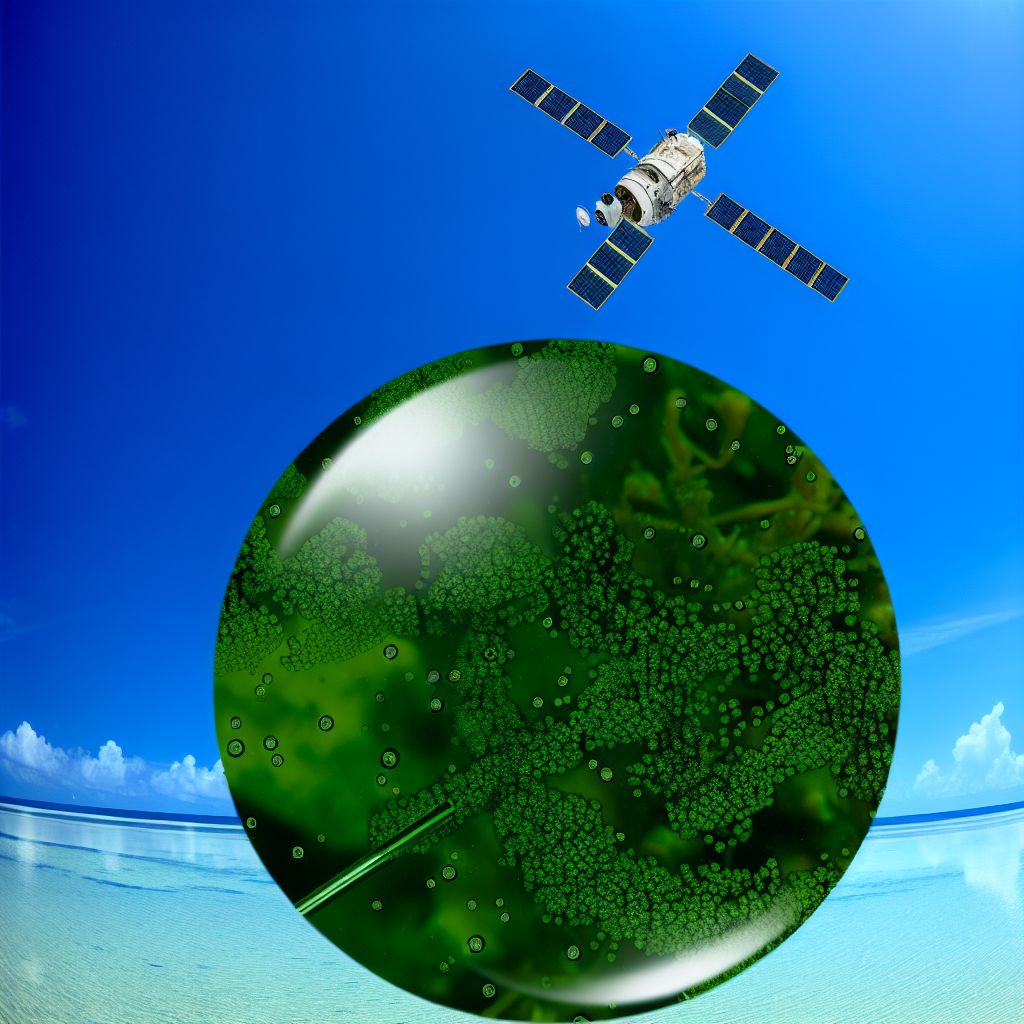In the Space industry context, "phytoplankton" may not directly relate to space missions or spacecraft Technology, but it plays a significant role in Earth observation and climate studies conducted from space. Phytoplankton are microscopic, photosynthetic organisms found in oceans and bodies of freshwater. They are crucial to the Earth's ecosystem, serving as the base of the aquatic food chain and playing a key role in the Carbon cycle by absorbing carbon dioxide during Photosynthesis.
General Description

Satellites equipped with Earth observation instruments can Monitor phytoplankton populations on a global Scale, analyzing changes in their Distribution and abundance. This Data is vital for understanding ocean health, assessing the impact of climate change on marine ecosystems, and predicting global carbon cycles. Variations in phytoplankton populations can indicate shifts in ocean Temperature, salinity, and nutrient levels, offering insights into broader environmental changes.
Application Areas
- Climate Change Studies: Monitoring the health of phytoplankton populations helps scientists understand the Earth's carbon cycle and the ocean's role in sequestering carbon dioxide.
- Marine Ecosystem Health: Phytoplankton serve as an early indicator of changes in marine ecosystems, which can affect fish stocks and biodiversity.
- Oceanography: Satellite data aids in the study of ocean currents, upwelling zones, and other physical phenomena that influence phytoplankton distribution.
Risks and Challenges
The primary challenge in using satellites to study phytoplankton is the difficulty of interpreting data accurately due to the Complexity of oceanic ecosystems and the small size of phytoplankton. Cloud cover, atmospheric particles, and Water turbidity can also interfere with satellite observations, requiring sophisticated algorithms to process and analyze the data.
Weblinks
- umweltdatenbank.de: 'Phytoplankton' im Lexikon der umweltdatenbank.de (German)
- environment-database.eu: 'Phytoplankton' in the glossary of the environment-database.eu
Summary
While "phytoplankton" itself is not a space industry term, studying these organisms from space using Earth observation satellites provides Critical data for environmental Science, climate Research, and oceanography. This underscores the interconnectedness of space technology and Earth's ecological and climate systems, highlighting how advancements in space exploration can contribute to our understanding of and response to environmental challenges.
--
Related Articles to the term 'Phytoplankton' | |
| 'Salinity' | ■■■■■■■ |
| Salinity: In the space industry context, salinity refers primarily to the measurement and study of the . . . Read More | |
| 'Bomber' | ■■■■■■ |
| Bomber in the space industry context refers to a type of spacecraft or space mission designed to impact . . . Read More | |
| 'Deep Space Mission' | ■■■■■■ |
| Deep Space Mission in the space industry context refers to any space mission that goes beyond Earth's . . . Read More | |
| 'In-situ' | ■■■■■■ |
| In the space industry context, in-situ refers to the observation, analysis, or utilization of materials . . . Read More | |
| 'Fluxgate' | ■■■■■■ |
| Fluxgate in the space industry context refers to a type of Magnetometer used primarily to measure the . . . Read More | |
| 'Space Exploration' | ■■■■■■ |
| Space Exploration refers to the investigation and study of outer space through the use of Astronomy, . . . Read More | |
| 'Ocean' | ■■■■■■ |
| Ocean: The ocean (also the sea or the world ocean) is the body of salt water that covers approximately . . . Read More | |
| 'Earth' | ■■■■■■ |
| The Earth plays a central role in the Aerospace industry, as it is the Planet where all aerospace vehicles . . . Read More | |
| 'Vegetation' | ■■■■■■ |
| Vegetation in the context of the space industry refers to the study and monitoring of plant life on Earth . . . Read More | |
| 'Spacecraft ' | ■■■■■■ |
| A spacecraft is a vehicle or Machine that is designed and built to operate outside of the Earth's Atmosphere, . . . Read More | |
